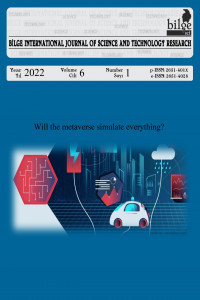Entegre Katı Atık Yönetimi; İnegöl Örneği
Ekonomik ve teknolojik gelişimle beraber katı atık oluşum miktarlarında görülen artış su, toprak ve hava üzerinde çeşitli zararların oluşmasına neden olmaktadır. Bu zararları en aza indirebilmek için toplumlar sahip oldukları atık özelliklerine göre en uygun atık yönetim sistemlerini geliştirmek ve uygulamak durumundadır.Bu çalışmada Bursa ili İnegöl ilçesi için uygulanmakta olan mevcut katı atık yönetim sistemi uygulamaları değerlendirilerek tespit edilen bulgular ışığında İnegöl ilçesi için en uygun katı atık yönetimi sistemi önerileri geliştirilmiştir. Çalışmada, İnegöl ilçesinin ekonomik, jeopolitik ve toplumsal özellikleri ve güncel katı atık karakterizasyon verileri saha çalışmaları yapılarak değerlendirilmiştir. İlçedeki katı atık yönetim sorunları ortaya konulmuş ve sanayi işletmeleri bakımından zengin olan ilçe için en uygun entegre katı atık yönetim sistemi önerisi geliştirilmiştir.Bursa ili İnegöl ilçesi özelinde oluşturulan entegre katı atık yönetim sistemi ile bölgede yaşanan katı atık kaynaklı çevre kirliliğin azaltılması ve atıkların en uygun şekilde değerlendirilerek yönetilmesi sayesinde bölge ve ülke ekonomisine önemli katkılar sağlanacağı öngörülmektedir. Bu kapsamda özellikle ambalaj atıklarının etkin bir şekilde geri kazanılması ve değerlendirilmesi, mekanik biyolojik ayırma ünitesinin kurularak, organik içerikli atıkların kompost ve gazlaştırma üniteleri yardımıyla değerlendirilmesi ile mevcut depo sahasının ömrünün uzatılmasının İnegöl için en uygun katı atık yönetim çözümü olduğu belirlenmiştir. Bunun yanında İnegöl’de bulunan sanayi bölgelerinden kaynaklı tehlikeli atıkların da ilgili mevzuat hükümleri doğrultusunda yönetiminin tesis edilmesi ve diğer katı atıklarla karıştırılmasının önlenmesi önerilmektedir.
Anahtar Kelimeler:
Katı atık, atık yönetimi, atık karakterizasyonu, geri kazanım, kompost
Integrated Solid Waste Management; Inegöl Sample
The increase in the amount of solid wastes occurring together with economic and technological development causes various damages on water, soil and air. To minimize these damages, societies must develop and implement the most appropriate waste management systems according to their waste properties. In this study, the current solid waste management system applications for İnegöl district of Bursa were evaluated and the most suitable solid waste management system proposals were developed. In the study, the economic, geopolitical and social characteristics and current solid waste characterization data of İnegöl district were evaluated by field studies. The existing solid waste management problems in the district have been introduced and the most appropriate integrated solid waste management system proposal for the district, which is rich in industrial enterprises, has been developed. With the integrated solid waste management system established in the province of Bursa İnegöl, it is foreseen that significant contributions will be made to the region and the country's economy by reducing the environmental pollution caused by solid wastes and managing the wastes in the most appropriate way. In this context, efficient recovering and evaluation of packaging wastes, establishment of mechanical biological separation unit, evaluation of organic wastes with the help of compost and gasification units and extending the life of the existing storage area were determined as the most suitable solid waste management solution for İnegöl. In addition, it is recommended that hazardous wastes originating from industrial zones in İnegöl should be established in accordance with the relevant legislation and to prevent mixing with other solid wastes.
Keywords:
Solid waste, waste management, waste characterization, recovering, compost,
___
- Bagchi, A., 2004. Design of landfills and integrated solid waste management. Hoboken, N.J.: J. Wiley.
- İnegöl Belediyesi, Erişim Tarihi: 12.02.2017. http://www.inegol.bel.tr,
- McDougall, F., 2001. Life Cycle Inventory Tools: Supporting the Development of Sustainable Solid Waste Management Systems. Corporate Environmental Strategy, 8, 2, 142-147.
- Morrissey, A. J. and Browne, J., 2004. "Waste management models and their application to sustainable waste management". Waste Management -Pergamon Press-. 24 (3): 297-308.
- Sakai, S., Sawell, S. E., Chandler, A. J., Eighmy, T. T., Kosson, D. S., Vehlow, J., Sloot, H. A., and Hjelmar, O., 1996. World Trends in Municipal Solid Waste Management. Waste Management, 16, 341.
- Seadon, J. K., 2006. "Integrated waste management - Looking beyond the solid waste horizon". WASTE MANAGEMENT -PERGAMON PRESS-. 26 (12): 1327-1336.
- Tabasaran, O., 2016. Katı Atık Yönetimi ve Teknolojileri, İstaç Teknik Kitaplar Serisi, İstanbul
- Tchobanoglous, G., Theisen, H., and Eliassen, R., 1977. Solid wastes: Engineering principles and management issues. New York: McGraw-Hill.
- ISSN: 2651-401X
- Yayın Aralığı: Yılda 2 Sayı
- Başlangıç: 2017
- Yayıncı: Kutbilge Akademisyenler Derneği
Sayıdaki Diğer Makaleler
Entegre Katı Atık Yönetimi; İnegöl Örneği
Akustik Performansı Etkileyen Geometrik Tasarım Parametreleri ve Farklı Plan Tipi Örnekleri
Evrişimsel Sinir Ağları ile Örümcek Kuşugillerin Bazı Türlerinin Sınıflandırılması
Türkiye’de Yapılan Akademik Çalışmaların Büyük Veri Araçları ile Bibliyometrik Analizi
Abdullah BERAM, Samim YAŞAR, Aytaç UZ
Mantıksal Regresyon Yöntemi ile Adıyaman İli Heyelan Duyarlılık Değerlendirmesi
Effects of Salicylic Acid on Triticale under Salt Stress
İbrahim Ertan ERKAN, Özlem ARAS AŞCI
Investigation of The Effects of Heat Treatment On Varnished Wood Material
